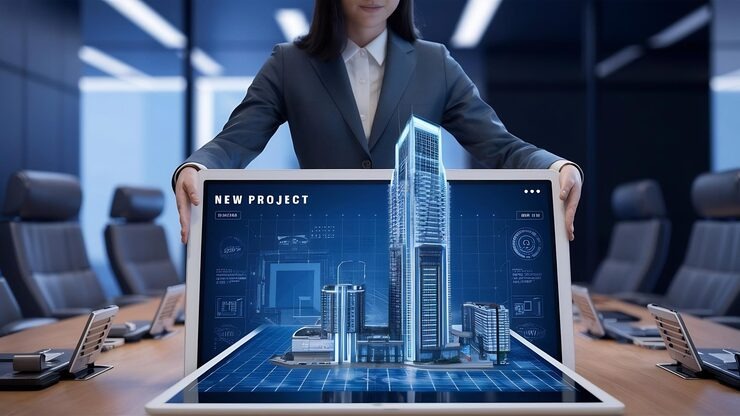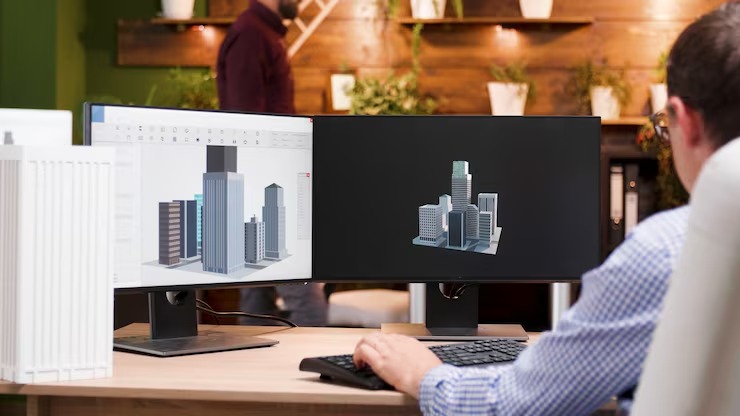What is building management system cost? Perhaps you are a property manager or someone looking to expand their knowledge on BMS use and cost. This article explains the factors that contribute to the BMS cost and offers valuable tips for selecting a perfect product within your budget.
Whether you manage several properties or want to learn, let’s delve into the world of building management systems and discover the factors that influence their costs.
What is BMS and why is it Necessary?
Before discussing the cost of building management systems, let us help you understand the term BMS. A BMS is a computer-based software system that can monitor and control HVAC, surveillance devices, lighting fixtures, plumbing and water systems, and alarms.
With a Building Management System (BMS), you do not have to worry about impending issues like security threats, energy overuse, tenant occupancy issues, or plumbing problems. The BMS will automate and reveal these issues before they affect the comfort and safety of building occupants.
A BMS identifies issues and forms control measures to rectify them. Installing a building management system has several benefits, whether you manage residential or commercial buildings. Some of these include:
- Increased Energy Efficiency – A BMS helps you check the current status of various systems that consume energy. Thus, you can upgrade less efficient energy consumers to reduce your utility bills.
- Occupant Comfort – The ideal building management system enables control parameters such as air conditioning, ventilation, and heating. You can adjust HVAC settings to maintain optimal environmental conditions for your tenants’ comfort.
- Easier Property Maintenance Management – Even if you are far away, some BMS types can reveal the real-time status of various systems within the property. You can then identify equipment faults and other issues and troubleshoot them before they become a menace. A BMS keeps your property maintenance schedule up-to-date, ensuring no downtime for occupants.
- Enhances Building Security – The BMS integrates different security systems within the property, including CCTV cameras and fire alarms. If a security threat emerges, the BMS will alert you instantly.

Building Management System Cost – What Factors Affect BMS Pricing?
The cost of building management systems varies based on the given factors. If you understand the factors that drive the BMS cost, you can get an appropriate product for your budget.
Also, this knowledge can help you avoid hidden costs that only emerge later. A commercial building BMS may have you spend $20,000 to $100,000. However, the average building management system cost of a complicated building can rise to $500,000. As the BMS expenditure varies, here are six factors that can increase or decrease the price:
- Property Size and Complexity – Bigger buildings have more expensive equipment requirements. Their many facets and systems require a more robust BMS, which is pricier. Moreover, a legacy building can restrict the implementation of the BMS until you upgrade the infrastructure. This renovation will come at an additional cost.
- Professional Installation Service – An ordinary facility manager or owner cannot implement BMS unless they have knowledge or support from an expert. As you establish the building management system cost for your property, consider that you need expert help to implement the BMS and train your staff. This service will come at a fee.
- Building Expansion – Perhaps you plan to continue building your flat soon. This expansion plan will directly increase your initial building management system cost. If you estimate the building expansion cost before you implement your BMS, you will avoid costly software reconfigurations later.
- BMS Types and Pricing – Many building management systems are on the market. Each has unique features that affect its overall pricing. Take the time to explore different BMS types and compare features that determine their upfront prices. For instance, the upfront cost of installing the smart building BMS is higher because of the IoT integration. However, you will recover every penny via energy efficiency and other benefits. The cloud-based system’s upfront installation cost is a low subscription-based rate. However, you might spend more money over the life of the BMS.
- Customization and Modern Features – Perhaps you want a BMS system that can integrate the current digital technology, such as artificial intelligence or remote mobile app monitoring. While these features are incredibly beneficial, you will spend more money to have them.
- Integrations –How many systems within your property do you want to integrate with the BMS? The larger and more complex your building is, the higher the implementation building management system cost will be. Besides, if you have an old building with outdated features that cannot work with the modern BMS, you must incur the retrofitting cost. Working with a Master System Integrator (MSI) can simplify this process by ensuring that both new and legacy systems are seamlessly connected for optimal performance.
Different Types of BMS Costs to Consider
The building management system cost includes many items, including:
- Equipment Cost – Check how much the equipment costs, as you budget for your BMS. The rate may fluctuate depending on its type, size, and functionality. A typical BMS comes with components like sensors, controllers, actuators, communication tools, etc. These items come from different brands, which affect their prices.
- Installation Cost – To estimate the building energy management system cost, you must pay the installer. What will be their labor hours given the existing control points? If they need to upgrade an old building or a legacy BMS, you will meet additional modification costs. Professional services you can depend on are hardly ever cheap, but they are more reliable than DIY trials. Besides the initial installation expenses, you might need continued support from the installer. You must consider their long-term BMS maintenance fees.
- Energy Savings and Maintenance Expenses – Most facility managers and property owners aim to achieve energy efficiency with their preferred BMS. If you install your BMS professionally, it will make your building more energy-efficient. It will monitor every system operating in the building and measure its energy consumption rate. Maintenance of systems is necessary to meet your energy-saving goals. Your maintenance tools are software updates, trained technicians, and system testers and inspectors. These will come at a fee. The fee will be an ongoing expense that you need to estimate before installing your BMS.
- Hidden Costs – The building management system cost also includes hidden expenses. BMS vendors do not openly communicate about hidden costs. Further, you have no control over the changes they make to their software usage terms and conditions. They may choose to charge annual software licensing fees. If you already use their BMS, your best choice is to meet this hidden cost. Another possible hidden expense is the maintenance and support fees. Some companies will charge a fee for every technical visit or advice they give you. Others will include it in their upfront installation fee. Training fees may also be a hidden fee with some BMS vendors. They will only train your staff at an extra fee and they expect you to plan for it.
How to Minimize the Cost of Implementing Your BMS
To lower your your building management system cost, your best bet is to start small. The upfront equipment and installation price for centralized, decentralized, integrated, smart building BMS and other options is high. You can still handle this cost by buying and installing the components individually.
This can give you enough time to scan different BMS vendors and choose the best supplier. Another way to implement a cost-effective BMS is to choose a cloud-based system. Its upfront cost is smaller and manageable than any premise-based system.
Lastly, investigate whether your local utility companies have tax rebates and other incentives for property managers or owners who install energy-efficient equipment like the BMS.
Conclusion
The building management system cost is not a standard figure for all users. You must consider certain factors that affect the cost of implementing a BMS. From the size of the building in square meters to its structural complexities, the factors you should reflect on can vary. As much as lowering the upfront cost is necessary, consider the long-term cost-saving benefits of each BMS product.





